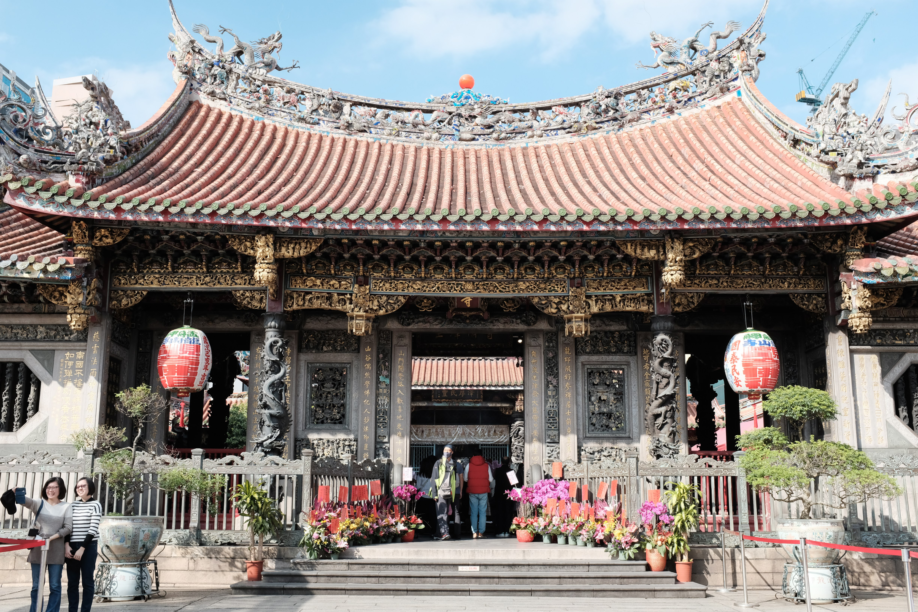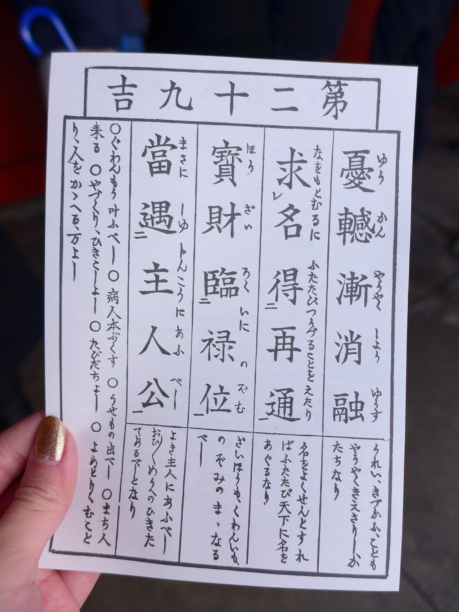“You’re so lazy that you’d be best off with a job that you can work from your bed,” a Ba Zi analyst told me. He looked young for a fortune teller but had an air of quiet confidence, his thorny words almost unpleasant. Although I couldn’t disagree with his reading of my inglorious character, I felt as if my soul had been strip-searched. Writing, the laziest form of existence, was indeed my destiny.
“You have such unrealistic expectations for a partner that you might have a hard time finding one,” he continued matter-of-factly. “He has to be handsome, smart, capable, and charming all at once.” So I shall die alone, I thought.
Ba Zi (八字), translated as “Eight Characters,” is a branch of Chinese metaphysics that examines one’s personality and destiny. Practitioners hesitate to call themselves fortune tellers, because they don’t necessarily predict the future. Instead, they dissect personal tendencies and potentialities, determined by the moment of our first breath, to gain insight into what we may or may not achieve in our lifetime. In this way the schism between Ba Zi and conventional Chinese fortune telling bears a certain resemblance to traditional Western astrology, which is likewise a system of classification for character and psychological traits with a metaphysical branch and a fortune-telling “folk” branch.
After the session, I texted my mom to share my first experience with Ba Zi, which she immediately dismissed as a scam and a waste of money.
“But the guy said you’re the source of my good fortune,” I told her. “And that my life would be better if I stay closer to you.”
“He’s right. You should listen to him,” she said, now crowning him as a master soothsayer.
Whenever I need some divine reassurance, or when I want a stranger to make wise comments on my career or relationship, I am open to all kinds of fortune telling, including palm reading, Tarot cards, rice divination, and I Ching. In Taiwan, psychics sometimes take on the role of a therapist, offering solace—or affirmation—for people who seek a path to follow.

The Ba Zi expert revealed one trait that aligned with previous fortune readings: I’d have tremendous luck at a young age. I was told the same story when I had my first proper fortune reading as a teenager with Mr. Tam, a respected consultant in Zi Wei Dou Shu (紫微斗數), a popular form of Chinese astrology that observes the constellations. While Ba Zi is concerned with one’s overall potential, Zi Wei Dou Shu claims to help pinpoint life issues and events in specific years.
After calculating my birth chart, Mr. Tam said with utter confidence that my early years would be smooth sailing, that I’d find success in doing things I enjoy, and that I’d “peak” starting at the age of 28—though my luck would likely run out by my 40s.
The elders in my family often bring up this old Chinese maxim: “First fate, second fortune, third feng shui” (一命二運三風水). Our fate, predetermined by our circumstances and background at birth, is like the car we’re assigned to in the journey of life. Within these limitations, our fortune or luck lays the highway that will lead us through varied climates and landscapes, the highs and lows. Then comes feng shui: The environment we choose to put ourselves in, whether we take a scenic route or a shortcut, may alter the outcome.
My mom was convinced that I had already won the lottery by having gotten the chance to leave Hong Kong, a place doomed for turmoil as China continued to tighten its grip. From the time my good fortune was promised in Zi Wei Dou Shu, I grew up feeling like a winner, blessed with abundant opportunities and kindness no matter how my life twisted and turned. Per my destiny, as prescribed by the stars, greatness would somehow be thrust upon me at the age of 28.
I turned 28 in April 2020, in the midst of a deadly coronavirus pandemic that threw the world off course, and the promised “peak” never arrived. Instead, I felt a growing malaise that descended into depression as the pandemic magnified every bit of the negativity spreading over the world. Collective depression and anxiety have even affected mostly Covid-free countries like Taiwan and Australia.
Like most people, I struggled to plan ahead. Ideas and words fled my mind as everyday life grew increasingly monotonous and imprisoning; routine, but without its comforts. Had Mr. Tam not foreseen that Covid-19 would force the world into a standstill, ransacking everyone’s fortunes in one way or another as I reached my 28th year? Or did he mean that this—a hopeless state of stagnation and mediocrity, punctuated with fear and recurring disappointment—was the pinnacle of my life?
Certainly, I’m nowhere near where I’d like to be professionally. While “success” is often equated with wealth or fame, surviving the pandemic with loved ones seems to be the new benchmark for me. Having a roof over my head, sharing a socially-distanced meal with friends, and marveling at good weather are now triumphs worth celebrating. When we eventually return to the hamster wheel, I may, in hindsight, realize that my lost peak year was one carved out for introspection.

Nearly twenty years ago, when my mom had just dragged me from Hong Kong to New York without a thorough plan, I had my first encounter with a fortune teller. We’d left my brother, ten years my senior, to his own devices. A single mother with few friends to count on, my mother needed spiritual guidance in a strange country even if it was in the form of fortune telling. She wanted to know if bringing me along had been the right decision, if we would thrive in the land of promised prosperity.
I never saw the fortune teller’s face. In a dingy, rusty yellow room tucked away from the foot traffic in Chinatown, I waited nervously for my mom, worrying that her soul might be stolen by the mysterious man behind the curtain. A Chinese auntie told me he had lost his legs, the price he’d paid for revealing too many heavenly secrets to the layman. His clairvoyance supposedly came from fostering “baby ghosts” in amulets, a dangerous practice that could harm the spirit-bearer.
My mother eventually appeared, emerging from the session in hysterical tears.
“Your daughter will stay by your side,” the fortune teller had told her. “But your son… will always be far away and blame you for the neglect.”
Even if it was just a guess, the fortune teller’s prophetic words stayed with me, long after my mom forgot about that particular visit; I still live close to her after several years of traveling abroad, and my brother, despite having tried to live in the United States, is across the planet in Australia. Just as predicted.

I reminded my mother of this recently, but she didn’t remember what was said. She might have erased it from her memory because that prescribed destiny was, according to her, “bullshit,” even though her guilt had been so deeply felt at the time. What the fortune teller had failed to take into account was her strong will. She has, through relentless calls and group chats, kept our family relationships from fraying despite the long distance.
As for me, I’ve let go of the fantasy that the stars would always shine a light on my path, that a force beyond would map out my destiny for me. I have yet to live up to my fortune’s blessings.





